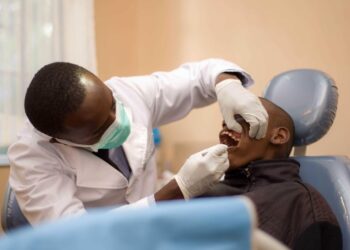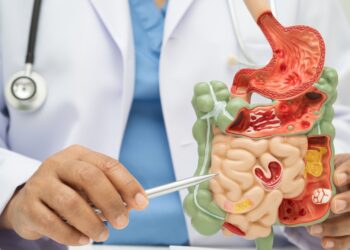When men think about health priorities, heart, muscle, or weight management often come to mind first. Yet prostate health deserves just as much attention. The prostate, a small gland that plays a key role in male reproductive function, can be affected by conditions ranging from benign enlargement to chronic inflammation and cancer. While genetics and age play unavoidable roles, lifestyle factors — including diet, activity, and microbial balance — are increasingly recognized as important.
Recent research suggests probiotics, the beneficial bacteria that support microbial ecosystems, may influence prostate health more than previously believed. Understanding this connection gives men practical tools for prevention and long-term wellness.
Why Prostate Health Matters
The prostate gland surrounds the urethra and contributes to seminal fluid, which nourishes and transports sperm. As men age, the prostate often enlarges in a condition called benign prostatic hyperplasia (BPH). Though noncancerous, BPH can cause urinary symptoms such as frequent nighttime urination, difficulty starting urination, or incomplete bladder emptying.
Prostatitis, or inflammation of the prostate, can affect men of all ages and is often linked to infection or immune system responses. Prostate cancer is another concern: it remains one of the most common cancers in men worldwide. These issues share common risk factors, including chronic inflammation, immune dysfunction, and diet — all of which are influenced by microbial health.
The Microbiome–Prostate Connection
Scientists have begun mapping out how gut and urinary microbiomes may affect the prostate.

Several mechanisms are being studied:
- Immune regulation: The gut microbiome controls much of the body’s immune response. When gut bacteria are balanced, systemic inflammation is lower, which may protect the prostate. Dysbiosis, or imbalance, is linked with higher inflammation and could worsen prostate issues.
- Hormonal metabolism: Gut microbes influence hormone levels, including androgens and estrogens. Since prostate growth and cancer risk are hormone-sensitive, microbial changes could impact progression.
- Metabolic health: Probiotics help regulate weight, insulin sensitivity, and cholesterol. Metabolic syndrome — marked by obesity, high blood pressure, and insulin resistance — is also associated with higher risk of prostate disease.
- Urinary tract interactions: Some evidence suggests that urinary microbiota affect prostatitis risk. Supporting microbial balance in the urinary tract could therefore play a preventive role.
What Research Says About Probiotics and Prostate Health
While research is still early, several studies show promising links between probiotics and better prostate outcomes:
- Inflammation control: Probiotic supplementation has been shown to reduce markers of systemic inflammation, a known driver of prostatitis and BPH symptoms.
- Urinary function: Small clinical trials suggest men with urinary issues may benefit from probiotics that improve bladder health and reduce infection risk.
- Cancer research: Animal studies indicate that probiotic strains may inhibit tumor growth by enhancing immune responses and lowering oxidative stress. More human studies are needed, but the findings are encouraging.
- Metabolic improvements: Since obesity and diabetes increase prostate risks, the ability of probiotics to support weight control and insulin sensitivity has indirect benefits.
Choosing the Right Probiotics
Not all probiotics are equally effective, and men looking to support prostate health should consider specific factors:
- Strains with evidence: Strains like Lactobacillus rhamnosus, Lactobacillus reuteri, and certain Bifidobacterium species are being studied for urogenital and metabolic health.
- Combination formulas: Multi-strain products often provide broader benefits than single-strain supplements.
- Dosage: Look for products listing CFU (colony-forming units) in the billions, ensuring enough bacteria survive digestion.
- Delivery: Capsules with delayed release or protective coatings help bacteria reach the gut intact.
- Reputable brands: Trustworthy companies provide research, strain specificity, and storage guidelines.
Lifestyle Habits That Complement Probiotics
Probiotics alone are not a solution. They work best as part of a holistic approach to prostate health that includes:
- Balanced diet: Focus on fiber-rich foods, fruits, vegetables, lean proteins, and omega-3 fatty acids. Reduce intake of processed meats and high-fat dairy, which have been linked to increased prostate risk.
- Regular exercise: Physical activity improves circulation, reduces inflammation, and supports hormonal balance.
- Hydration: Drinking enough water supports urinary tract health and may reduce irritation in the prostate.
- Weight management: Maintaining a healthy body weight reduces risk for BPH and prostate cancer.
- Medical screening: Prostate-specific antigen (PSA) tests and regular checkups are essential for early detection.
Practical Applications
For men interested in integrating probiotics into their daily health routine, the first step is consistency. Daily intake is key, as probiotic benefits are often temporary and fade when supplementation stops. Pairing probiotics with a nutrient-dense diet ensures the bacteria thrive and deliver results.
Men with recurring prostatitis, urinary symptoms, or metabolic risk factors may particularly benefit from this approach. Those with existing prostate conditions should always discuss supplementation with their healthcare provider to ensure it complements medical treatment.
To explore targeted options, you can visit website resources such as Bioma, which provide probiotic formulations designed for men’s unique health needs.
The Future of Probiotics in Men’s Health
Microbiome science is still uncovering the complex ways gut and urinary bacteria influence male health. Future treatments may involve customized probiotic blends tailored to each man’s microbiome profile. Clinical trials are underway to better understand how probiotics may prevent or slow prostate disease progression.
As research evolves, probiotics may become part of a standard toolkit for men aiming to protect prostate function and improve quality of life.
Conclusion
Prostate health is a crucial but often overlooked part of men’s wellbeing. While genetics and age play major roles, lifestyle choices — especially those that support microbial balance — are within every man’s control. Probiotics offer a promising way to reduce inflammation, improve urinary health, and support long-term prostate function.
By combining probiotics with a balanced diet, regular exercise, and routine medical checkups, men can take proactive steps toward protecting their prostate. The science is still developing, but the potential is clear: supporting microbial health may be one of the smartest investments men can make in their future.














Discussion about this post